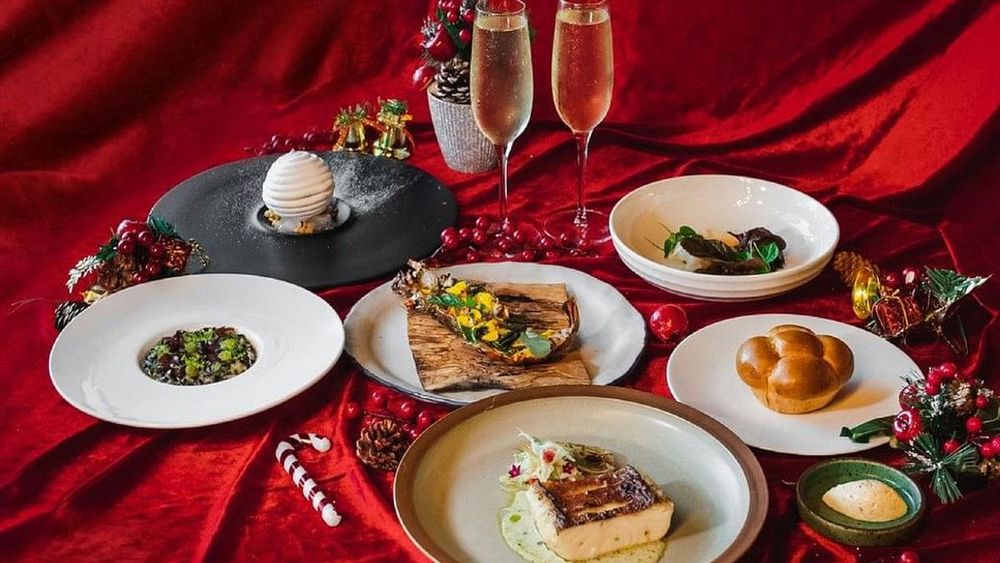Earth Day: Eat Well And Do Good At These Sustainable Restaurants In Singapore
Zero-waste cooking, farm-to-table concepts and more

In 2021, Singapore threw away 817,000 tonnes of food, an increase of 23 percent compared to the previous year. In fact, food waste made up 12 percent of the total waste generated by our tiny island nation. In conjunction with Earth Day on April 22, it's time for us to shine the spotlight on restaurants that are blazing trails on the sustainability front as they concoct various ingenious ways to reduce food waste all while creating delectable dishes for our consumption.
Related article: Get Your Dim Sum Fix At These Restaurants In Singapore
Kausmo was founded by chef Lisa Tang and Kuah Chew Shian, with the help of the Les Amis group, after the former was inspired by her stint working with zero-waste practices in America. The restaurant consequently aims to promote “thoughtful living by challenging food norms that bring about unnecessary wastage” through sustainable methods. Practices include giving new life to fruits and vegetables of all odd shapes and sizes that are over-ripe, have been overstocked, and are destined for the landfill; prizing overlooked secondary cuts of meat; sourcing seafood from local and regional farming communities; and incorporating native greens and florals. Kausmo doesn’t have fixed dishes but offers a carte blanche menu instead, with variations resulting what’s available.
For more info, click here.
Poison Ivy Bistro is the lovechild of Ivy Singh and Lim Ho Seng. After the latter’s retirement as the CEO of NTUC FairPrice, the two decided to start their own farm in 2000 after reading about it in the papers. Poison Ivy Bistro thus become a logical extension of the Bollywood Farms as the restaurant prides itself on providing farm-to-table food. Located in Kranji, the bistro and farm is an escape from the bustle of city living as you get to enjoy nature while tucking into wholesome meals made with produce grown in the area. The a la carte menu at Poison Ivy Bistro changes seasonally.
For more info, click here.
Awarded the Michelin Plater in 2021, Open Farm Community is a farm-to-table concept by the Spa Esprit group. As part of its sustainability efforts, Open Farm Community grows some of the fresh produce it uses onsite with the adjoining urban farm. They also source responsibly from a network of local and Southeast organic growers and food producers who share their vision. In addition, the restaurant aims to limit single-use plastic and unnecessary water and electricity consumption. You can also sign up for a farm tour on the brand’s website and allow the in-house urban farmers to teach you more about your food.
For more info, click here.
Headed by executive chef John-Paul Fiechtner with the support of 1-Group, Kaarla opened its doors in 2022 serving contemporary Australian food that celebrates the continent’s coastal seafood and agricultural produce. The restaurant works according to the principles of Environmental, Social, Governance (ESG) and UN Sustainable Development Goals (SDG), as they only use ethically grown and sourced seasonal produce from Australia and farms in Singapore. Kaarla is also supported by the adjacent 1-Arden Food Forest, an urban farm created in partnership with the social enterprise Edible Garden City. And as much as possible, Kaarla adopts a closed-loop production system that uses up as much food as possible while minimising waste.
Analogue was founded by Vijay Mudaliar and ranked 37 on the list of Asia’s 50 Best Bars in 2022. The bar offers a fully plant-based food and drinks menu, employing ingredients such as carob and chicory instead of chocolate and coffee that tax the environment less. The cocktails use cactus, spirulina and soursop to reflect the changing climate and their possible roles (as analogues) in a warming world. The restaurant decor also continues the brand’s sustainable efforts - the striking aquamarine bar counter was 3D printed from 1,600 kilograms of recycled plastic bottles, coasters made from recycled plastic and the smaller tables formed from self-growing fungal mycelium.
For more info, click here.
Labyrinth is a Mod-Sin restaurant created by chef-owner Han Li Guang. The one Michelin-starred establishment is an avenue to create “a new expression of Singaporean cuisine as LG Han draws inspiration from his childhood while creating dishes and flavours that challenge “the myths of pre-conceived notions of Singapore”. The resulting menu of familiar dishes is made with 90 percent locally-sourced ingredients from several local farmers and producers using natural and sustainable farming methods. Imported proteins from Singapore's far-flung regions are also swapped out for ones closer to home. Labyrinth’s tasting menu changes seasonally.
For more info, click here.